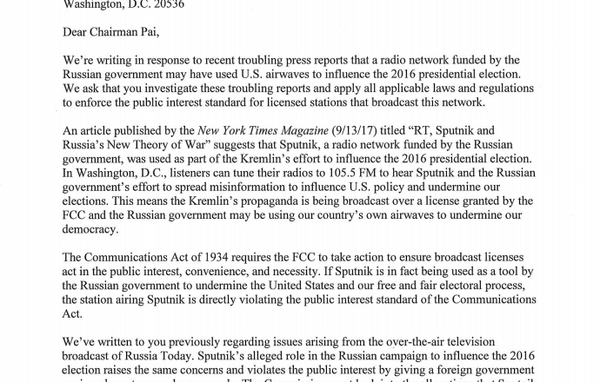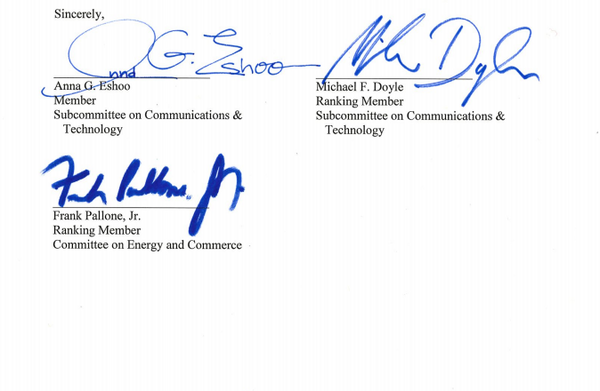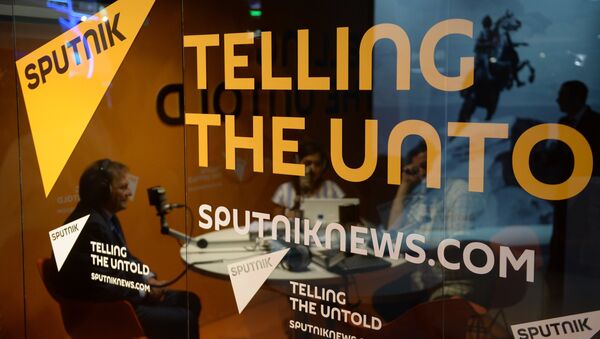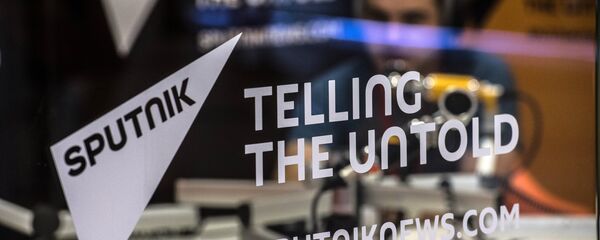"To accuse a radio [station] which started broadcasting two months ago of interfering in last years' election is the 'newest intellectual height' reached by the US establishment. [Former White House spokeswoman Jen] Psaki rises in applause," Sputnik and RT Editor-in-Chief Margarita Simonyan said.
In the letter, the congressmen cited an article in the New York Times, titled "RT, Sputnik and Russia’s New Theory of War" and suggested that the radio station "was used as part of the Kremlin's effort to influence the 2016 presidential election" and that "the Russian government may be using our country's own airwaves to undermine our democracy."
The congressmen are referring to Sputnik radio 105.5 FM in Washington, ignoring the fact that the radio station first went on the air in July, 2017, more than half a year after the day of the presidential election, which was held on November 8, 2016. The congressmen failed to give any arguments as to how Sputnik radio managed to affect the presidential election after it took place.


US Accuses Sputnik and RT of Election Interference
The accusations from the lawmakers are the latest in a series of allegations that Russia interfered in the 2016 US election. Russia has repeatedly denied the allegations, insisting that it does not meddle in the internal affairs of other countries. Margarita Simonyan, Editor-in-Chief of Sputnik and RT, refuted the allegations as groundless, while Kremlin spokesman Dmitry Peskov called them absurd.
The letter of the US lawmakers emerged several days after the former employee of Sputnik was questioned by the Federal Bureau of Investigations (FBI), which also received access to the internal emails of the news agency. The FBI's move was condemned both in Russia and in the United States for being a violation of freedom of press under the First Amendment to the US Constitution. The US Freedom of the Press Foundation expressed concern over the FBI actions.
Last week, Yahoo News reported, citing sources, that the FBI had questioned former Sputnik correspondent Andrew Feinberg as part of its investigation into whether Sputnik was acting as a tool of so-called Kremlin propaganda in violation of the US Foreign Agents Registration Act (FARA). The media outlet claimed that the FBI had access to Sputnik's working correspondence from Feinberg and another former employee of Sputnik's Washington bureau, Joseph John Fionda. The FBI itself has not responded to Sputnik's inquiry on whether it was conducting an investigation against the news agency.



